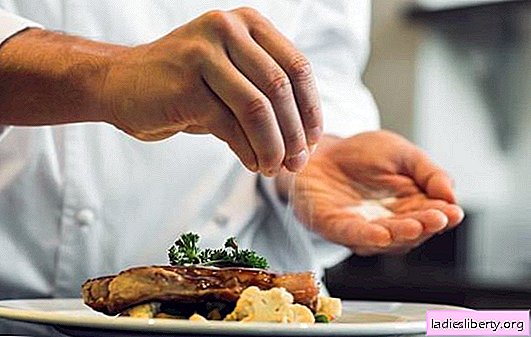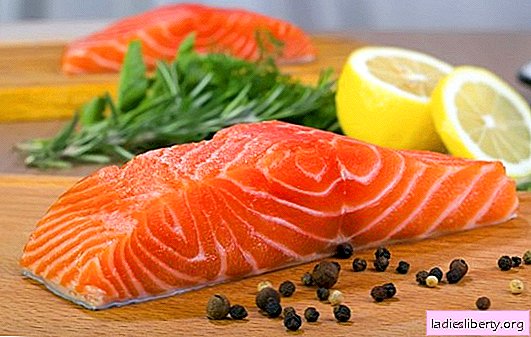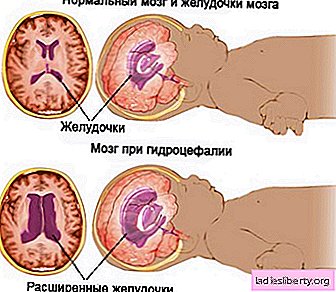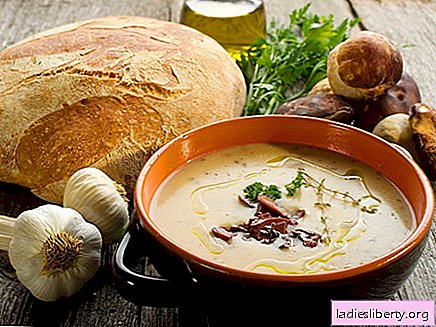
High blood pressure is one of the main public health problems that increases the risk of cardiovascular disease. Arterial hypertension is caused by the interaction of environmental and genetic factors.
Salt sensitivity increases the risk of developing hypertension and dangerous vascular complications. Who are “salt-resistant” people and is it possible to reduce sensitivity to sodium?
Briefly on the dangers of excessive salt
The most common external factor in hypertension is dietary salt intake. Salt is an important product in people's lives that is used universally in cooking, condiments and foods.
Ancestors ate food containing less than 1 g of salt per day. During periods of hunting, nomads ate meat for several hours after the killing.
Population growth has led to the introduction of agriculture. In the first years after the advent of agriculture, meat consumption decreased, and plant food increased to 90%. During this period, salt intake in people increased dramatically.
Observational data, animal experiments, and clinical trials show a causal relationship between salt intake and hypertension. Many epidemiological studies have also shown that high salt intake is associated with an increased risk of cardiovascular disease. There is scientific evidence that the reaction of blood pressure (BP) to salt intake varies significantly in humans.
Important! Salt sensitivity is a well-known phenomenon in experimental medicine. However, the exact mechanisms for the development of hypertension remain unknown.
Until recently, salt sensitivity was considered the result of delayed excretion of salt or renal failure. If salt intake exceeds the ability of the kidneys to excrete it, then it accumulates in the body. One of the main organ systems that are prone to the adverse effects of excessive salt intake in the diet is cardiovascular. It most often affects the heart, blood vessels, and kidneys.
What factors increase salt sensitivity?
Reducing sodium intake to 1 g will reduce annually the number of new cases of coronary heart disease by 20%. About 42% of people are insensitive to salt, i.e. Do not respond to it by increasing pressure. Hereditary predisposition and environmental factors play a decisive role in the formation of sensitivity to table salt.
Risk factors that increase salt sensitivity:
- Race (African American);
- Kidney disease
- Aging.
The kidney regulates the balance of fluids and minerals in the body and, consequently, blood pressure. Pathological changes in the kidneys are involved in the development of hypertension, but are unable to explain the high level of sensitivity to salt. Recent studies have revealed a factor that helps to become a salt-resistant person.
Is it possible to become a salt-resistant person?

In a recent scientific review, scientists showed that adding potassium to the diet did not help lower blood pressure. However, it reduced the body's response to ordinary table salt. The study provides strong evidence for the role of potassium in cardiovascular protection.
The results of Spanish studies show that a diet containing potassium and sodium can reduce the sensitivity of patients to table salt.
Further studies are aimed at identifying the molecular and cellular mechanisms of the effects of sodium and potassium on blood vessels and the heart. It will give scientists important information on understanding salt sensitivity and how to prevent it.
What are the benefits of salt resistance?
People who are insensitive to salt respond better to drugs that lower blood pressure.
Scientists emphasize the importance of reducing salt sensitivity in patients with hypertension.
Until 2018, 2 tests with a load of sodium chloride were invented, which help determine the degree of salt sensitivity.
The exact mechanism of the occurrence of salt sensitivity has not yet been identified.
Further studies are underway that are aimed at creating methods for preventing and treating the condition.
Potassium can help reduce sensitivity to sodium, but it does not replace a balanced diet and exercise.











